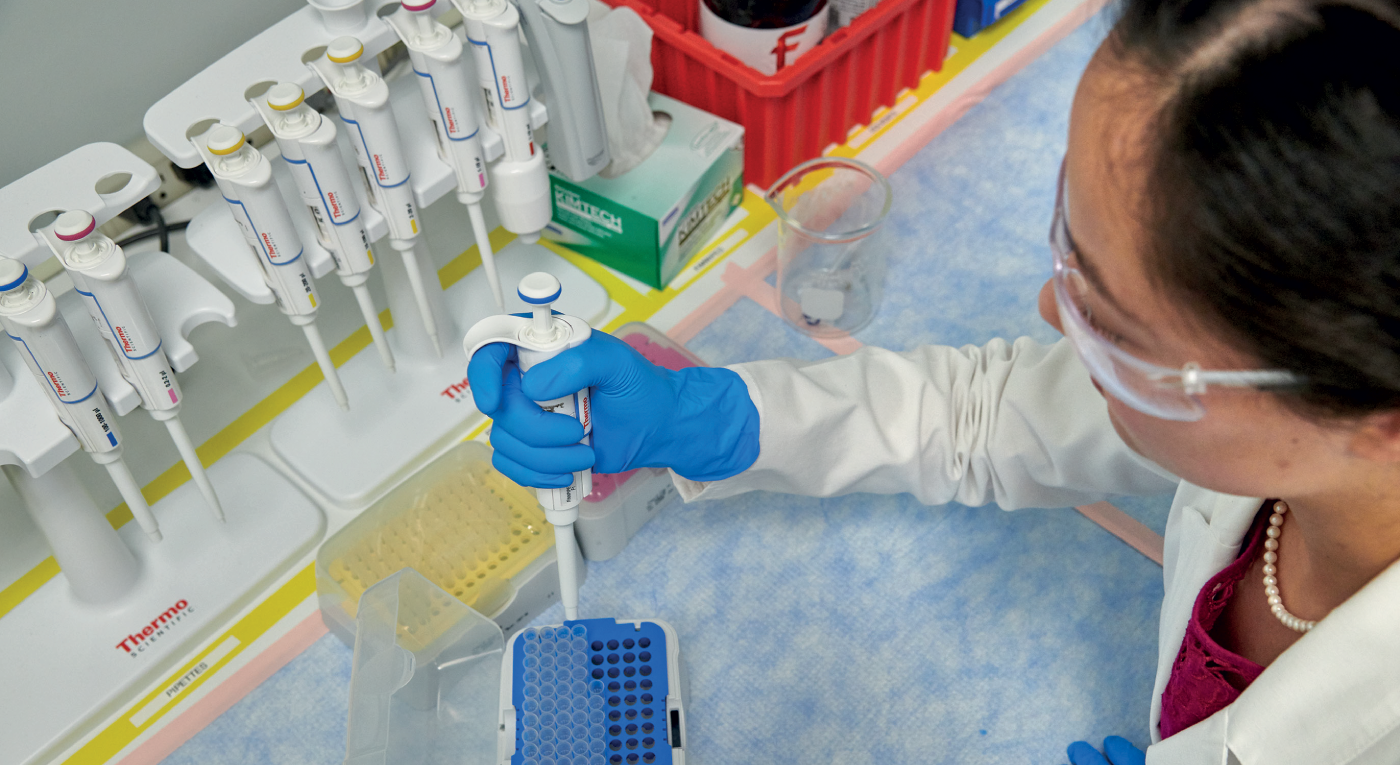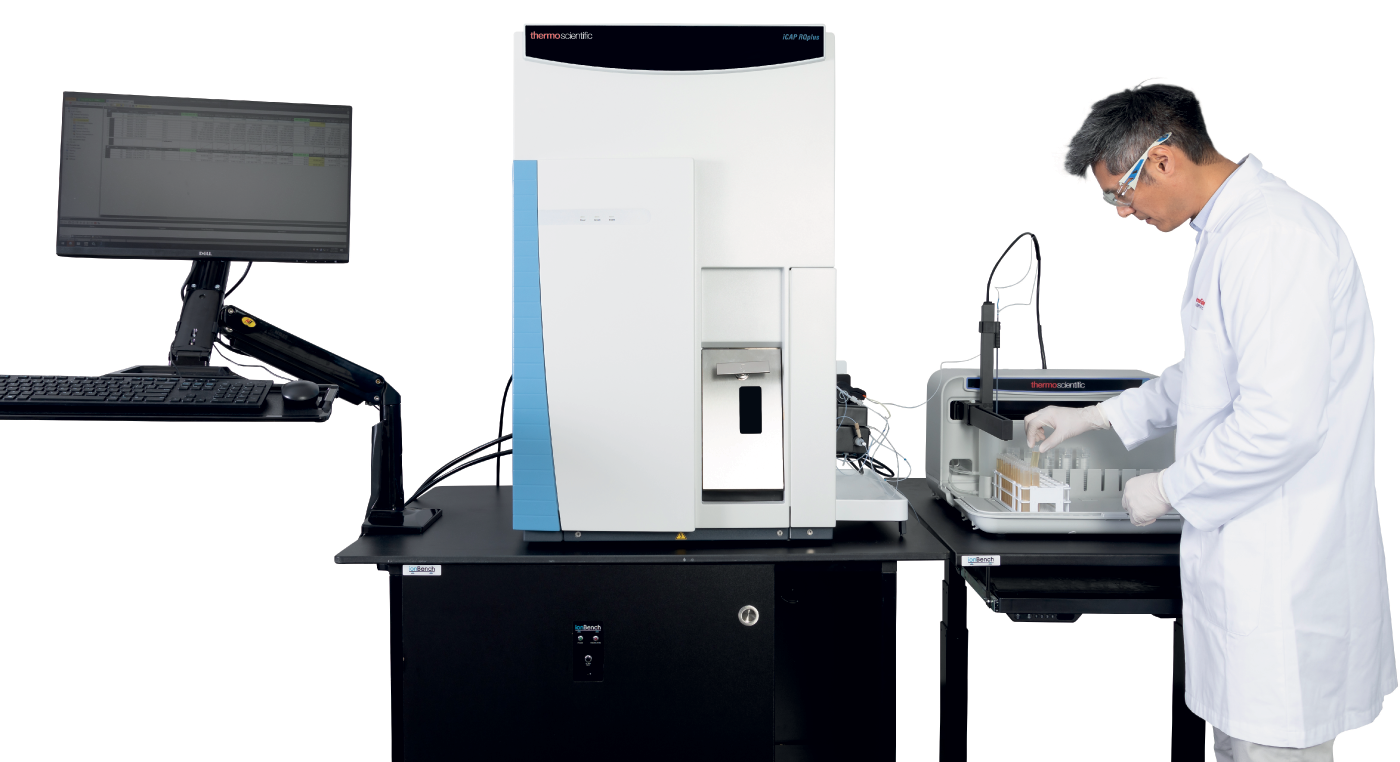ICP-MS is a powerful technique for analyzing elemental composition in environmental samples, due to its fast multi-element analysis, high sensitivity, and wide linear dynamic range. However, there are a number of challenges analysts face when performing trace elemental analysis.

Understanding the laboratory apparatus, materials, equipment, reagents, and standard solutions that are appropriate for trace and ultra-trace analysis by ICP-MS is challenging – and that’s before you tackle method development and validation. Once you do get started, inefficient workflow processes (for example, sample and standard preparations) can cause bottlenecks, systematic errors (which lead to inaccurate results) not to mention wasted time, labor, and resources. There are also regulatory requirements. You’ll need to i) meet comprehensive method specified quality control protocols and strict control limit criteria for quality control standards and samples, ii) satisfy trace and ultra-trace detection limit requirements, and iii) undergo laboratory audits by the state/municipality/federal agencies and internal audits. Then there’s the question of what to do when things go wrong – failed sample analyses and reruns, inaccurate results, poor data quality, high or low recoveries, contamination, and so on. How should one go about identifying the cause of sample failures and the corrective measures or actions to mitigate and resolve the issue?
There are many resources out there to help with these challenges, but there is a lack of a single, practical guide with information encompassing the entire trace elemental analysis workflow. Indeed, the vast amount of information, both online and in print, can be overwhelming.
And that’s why we have created an eBook – a guide for environmental sample analysis by ICP-MS – which aims to bridge that gap, covering everything from sample and standard preparation to instrument optimization and data analysis and troubleshooting. This eBook is a comprehensive yet practical resource guide that addresses the real-world challenges chemists face in environmental analysis using ICP-MS. We focus on practical tips, tricks, and proven strategies honed through years of experience. It is a valuable resource for daily use, training purposes, and institutional knowledge.

To give you a flavor of what the eBook has to offer, here are five snippets of wisdom to achieve success in ICP-MS analysis.
1. Small details, big impact on results. Inaccurate results often stem from seemingly minor issues, such as minute contamination, slightly inaccurate volume measurements, or use of glass versus plastic apparatus. The eBook helps analysts identify and address potential pitfalls from the start with general best practices that includes awareness of unapparent contamination sources and applying meticulous technique and attention to detail – these are often overlooked as root causes for failed sample results. Focusing on the small details can significantly minimize errors and ensure the accuracy and reliability of data.
2. Simplify to amplify. Streamlined workflows aren't just about quick turnaround of sample and reporting of results, they're crucial for accurate results, data quality, and achieving overall laboratory productivity goals for profitability.
3. Traceability is paramount. Sample integrity and documentation are vital. The eBook emphasizes the importance of proper documentation and record keeping for all preparation processes, instrument calibrations, sample analysis, troubleshooting actions, maintenance, and more – all to ensure that reported results are reliable and defensible.
4. Set up for success. ICP-MS is a highly sensitive technique. The eBook provides guidance on getting started with best practices for selecting laboratory apparatus, materials, reagents, stock standards, and so on, while advocating for a clean and organized work environment. The eBook also provides guidance on optimizing instrument calibration and set up for a wide range of sample concentrations and types of samples.
5. Knowledge is power. The eBook provides analysts with the knowledge required for success. They will gain expert insights, best practices, and troubleshooting tips to tackle common challenges and navigate the complexities of ICP-MS analysis for environmental and other industrial applications.
As a practical and user-friendly guide, this eBook empowers analysts to streamline their workflows, achieve accurate results, and ensure data quality – ultimately contributing to environmental protection and a safer, healthier world.

Download our comprehensive but accessible guide for environmental sample analysis by ICP-MS today.





